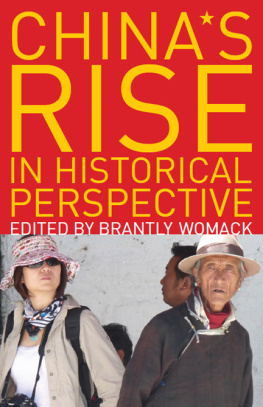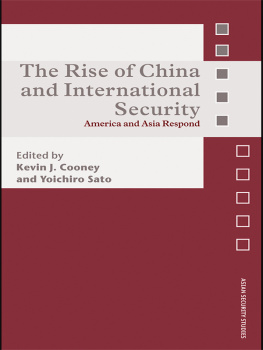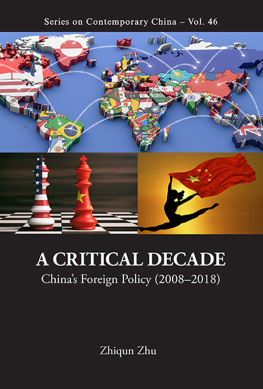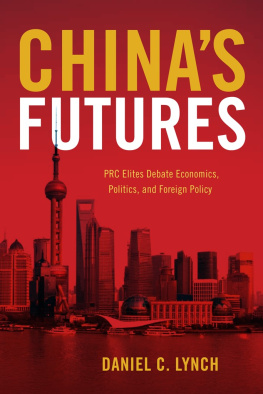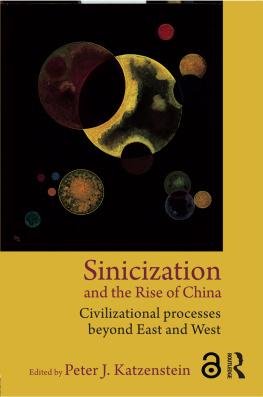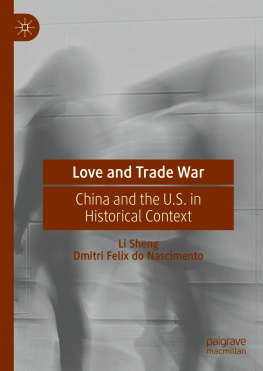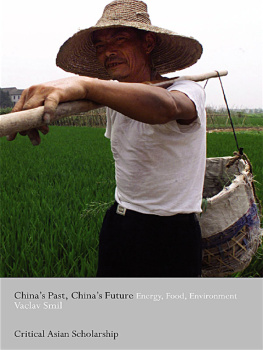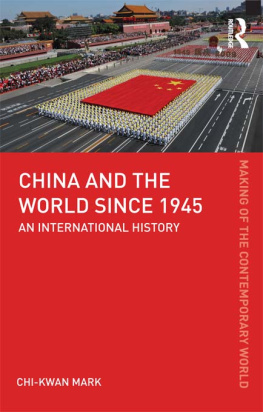
Chinas Rise in Historical Perspective
Chinas Rise in Historical Perspective
Edited by
Brantly Womack
ROWMAN & LITTLEFIELD PUBLISHERS, INC.
Lanham Boulder New York Toronto Plymouth, UK
Published by Rowman & Littlefield Publishers, Inc.
A wholly owned subsidiary of The Rowman & Littlefield Publishing Group, Inc.
4501 Forbes Boulevard, Suite 200, Lanham, Maryland 20706
http://www.rowmanlittlefield.com
Estover Road, Plymouth PL6 7PY, United Kingdom
Copyright 2010 by Rowman & Littlefield Publishers, Inc.
All rights reserved. No part of this book may be reproduced in any form or by any electronic or mechanical means, including information storage and retrieval systems, without written permission from the publisher, except by a reviewer who may quote passages in a review.
British Library Cataloguing in Publication Information Available
Library of Congress Cataloging-in-Publication Data
China's rise in historical perspective / edited by Brantly Womack.
p. cm.
Includes bibliographical references and index.
ISBN 978-0-7425-6721-4 (cloth : alk. paper) -ISBN 978-0-7425-6722-1 (pbk. : alk. paper) -ISBN 978-0-7425-6723-8 (electronic)
1. China--History--19492. China--Economic policy--19493. China--Politics and government--19494. China--Foreign relations. I. Womack, Brantly, 1947
DS777.55.C44922 2010
951--dc22 2010004021
The paper used in this publication meets the minimum requirements of American National Standard for Information SciencesPermanence of Paper for Printed Library Materials, ANSI/NISO Z39.48-1992. Printed in the United States of America
Contents
Introduction
Brantly Womack
China and the World: From Tribute to Treaties to Popular Nationalism
Joseph W. Esherick
On Chinas Rise
Lowell Dittmer
Chinese Strategy and Security Issues in Historical Perspective
Evelyn S. Rawski
Chinas Strategy and Security in the PostCold War Era
Michael D. Swaine
Chinas Prereform Economy in World Perspective
Dwight H. Perkins
The Dynamics of Chinas Reform-Era Economy
Barry Naughton
The Environmental Impasse in Late Imperial China
Mark Elvin
Chinas Energy Rise
Erica S. Downs
The Political Creativity of Late Imperial China
R. Keith Schoppa
Political Creativity and Political Reform in China?
Joseph Fewsmith
Struggle for Identity: A Political Psychology of Chinas Rise
Qin Yaqing
Preface
For most of us, China has made a dramatic entrance into our concerns and into our lives over the past decade. It has moved from being a distant curiosity or a distant threatbut distant in any caseto being at the front door of American global interests. Whether as a buyer of American debt, source of imports, or collaborator on global issues, China now occupies a unique place in our national attention. China seems not as familiar as Europe, not as hostilely juxtaposed to American interests as the old Soviet Union, and growing all the time. China has arrived.
But where is China going? Will it seek to dominate Asia the way Japan did in the first half of the twentieth century? Will its economic success undermine its government the way that economic stagnation undermined the Soviet Union? Will it play by the rules of the global order, or will it attempt to lead a new revolution? How will it relate to the United States as its economy approaches parity with ours? Will it choke to death on its own pollution? Can the same communist system that failed in Europe succeed in Asia? And keep succeeding?
China is famous for its tea, but there are no tea leaves powerful enough to divine its future or that of the world. However, China was not born yesterday, and the best indicator of its future course is the dynamic created by its past. Because our interest in China is new, we tend to be unaware of the momentum created by its past. We wonder where China will step next, but we cannot see the footprints of where it has been, or the direction that its shoes are pointed. Of course China can change direction, but it is unlikely to jump out of its skin.
Chinas Rise in Historical Perspective provides broad-gauged reflections by leading Western scholars on Chinas dynamics. The historians, political scientists, and economists most knowledgeable about Chinas past and present were recruited for the project. The contributors are all well known for their expertise on Chinas historical development and also for their current engagement with Chinese scholarship and with Chinese reality. These authors have what most Americans dont havebackground and engagement with Chinaand they are communicating the fruits of their experience. This is a task quite different from debates about being pro-China or anti-China, panda huggers or dragon slayers. The task here is to explore how China feels about itself and how it deals with its people, its resources, its neighbors, and the world. Chinas imagination as a global actor will be informed by its own experiences, and these must be understood in order to grasp the significance of its actions.
* * *
This project began with five miniconferences sponsored by the University of Virginias Miller Center of Public Affairs in the spring of 2009. Each miniconference featured a historian and an expert on contemporary China who addressed a major aspect of Chinas rise: identity, security, economy, ecology/ energy, and politics. Each pair of papers was jointly presented at a public lecture and then discussed in a smaller seminar setting. The revised papers became the first ten chapters, and Qin Yaqing, vice president of China Foreign Affairs University in Beijing, contributed a final chapter on the general development of Chinas world perspective.
The Miller Center is best known for a broad reach of programs on contemporary issues, most prominently the Presidential Oral History Program, the Presidential Recordings Program, the Program on Governing America in a Global Era, the National Discussion and Debate Series, its Forum Program, and its National Commissions. Characteristic of the Miller Centers approach to contemporary issues is a commitment to provide a broader and deeper context by involving academics as well as experienced officials.
The miniconferences on Chinas Rise in Historical Perspective were a great success. The lectures attracted overflow crowds, and still more watched the webcasts on the Miller Centers website. The cross-disciplinary seminar discussions were stimulating for the speakers as well as for the other participants. History does not provide the golden key to the future, but the programs demonstrated that focusing on the long-term dynamic opened new and important avenues of understanding. It is a pleasure and an honor to present the outcome of this enterprise in book form to a broader audience.
Credit for the general idea for the project should go to Melvyn Leffler and Jeffrey Legro, and further to Bradly Reed, who helped flesh it out. Governor Gerald Baliles, director of the Miller Center, and Brian Balogh, chair of the centers Governing America in a Global Era (GAGE) program, provided strong support and encouragement, as did Sidney Milkis, the assistant director for Academic Programs. The staff of the Miller Center, and especially Anne Mulligan, made the complicated task of running the series seem effortless.
Susan McEachern of Rowman & Littlefield Publishers has been a wonderful and encouraging editor. Moreover, the contributors have been remarkably tolerant of my suggestions and punctual with their revisions. I am very grateful to Ngoc Pham and Lee Shu-Shan, who prepared the index. The students in my class that accompanied the seminars added much to the liveliness and breadth of discussion.
Next page
